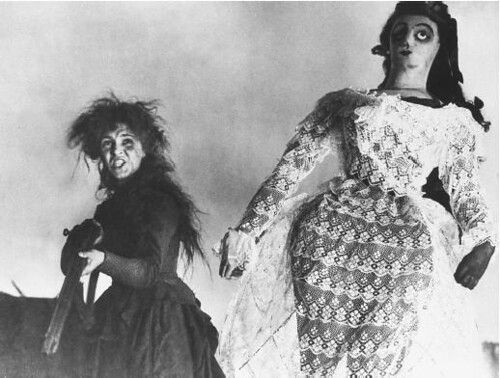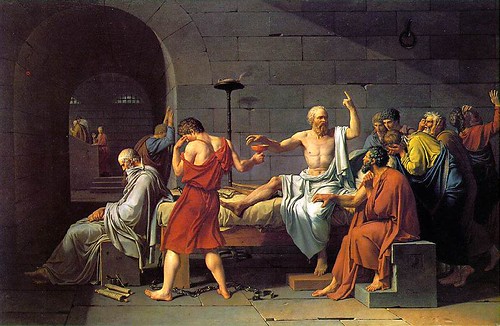Image sourced here
Novyy Vavilon (Eng:New Babylon) (1929), is a film directed Grigori Kozintsev and Leonid Trauberg. A black and white silent film (120 minutes in its original version and 93 minutes in its 2004 restored version). The propaganda film in the expressionist tradition of the early 20th century deals with the Paris Commune of 1870 and is largely set in a fantastic department store. We follow the encounter and tragic destiny of two lovers separated by the barricades of the Paris Commune. Some interesting IMDb user comments here[2]. Footage from the film was used in Guy Debord‘s The Society of the Spectacle.
New Babylon is also a concept by Dutch philosopher-artist Constant Nieuwenhuys.


